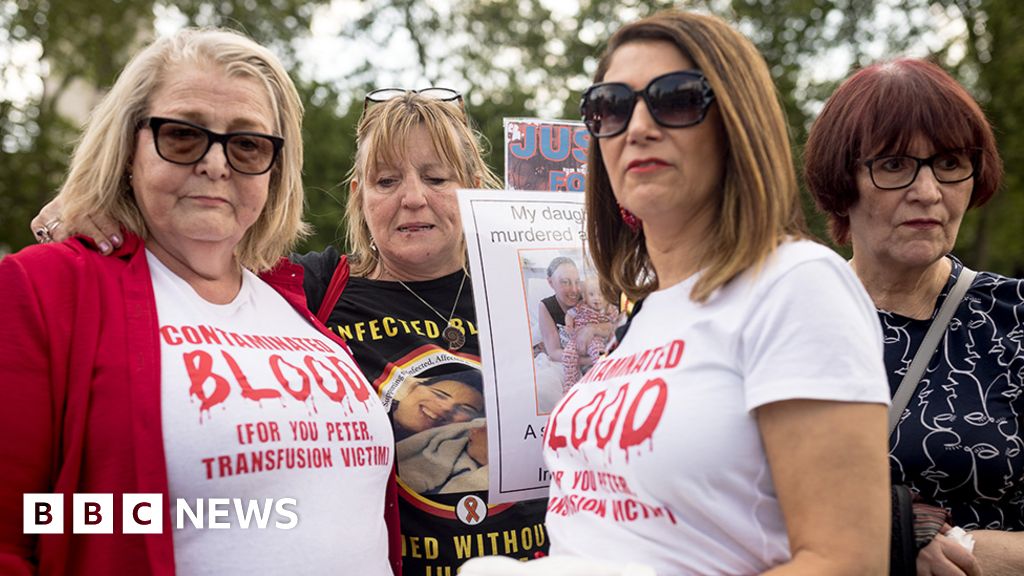The total cost of compensation is expected to run into billions of pounds.
The amounts are being judged under five criteria – harm caused, social impact from stigma and isolation, impact on autonomy and private life, care costs and financial loss.
The first payments will be made to those who were infected, the Labour government has said. Family members and loved ones of those infected will also be entitled to compensation from next year.
Outlining the compensation scheme in May, following the public inquiry, the then-Conservative government set out the amounts people could expect to receive., external It said these would be exempt from tax, and would not affect benefits.
A person infected with HIV, for example, could expect to receive compensation of between £2.2m and £2.6m. These are average ranges rather than upper and lower limits.
Those with a chronic hepatitis C infection, defined as lasting more than six months, could expect to receive between £665,000 and £810,000.
Examples of compensation awards for the family members of those infected were also given.
The partner of someone infected with HIV who is still alive today, for example, could expect to receive about £110,000, while a child could get £55,000.
If their loved one has died and they were financially dependent on them, annual payments would be available.
In cases where people who would be entitled to compensation have died, the money will go to their estate.
The Conservative government was criticised for waiting until after the publication of the final report to announce the compensation plans.
Bereaved families heckled then-prime minister Rishi Sunak in July 2023 when he told the inquiry that the government would act as “quickly as possible”.
In late 2022, following advice from the inquiry, the government made interim payments of £100,000 each to about 4,000 surviving victims and some bereaved partners.


